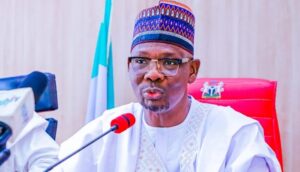Kemi Badenoch, the leader of the UK Conservative Party, has sparked fresh discussions about identity and heritage. In an interview with The Spectator, she revealed that she identifies more with her Yoruba ethnic roots than with Nigeria as a nation.
Born in the UK to Yoruba parents, Badenoch spent her early years in Nigeria before moving back to the UK at the age of 16. Despite her Nigerian background, she said her Yoruba ancestry is what gives her a strong sense of identity. She explained that she has little in common with northern Nigeria, describing it as culturally and ideologically different from her own heritage.
Her comments follow earlier criticism of Nigeria, where she described the country as plagued by corruption and insecurity. This statement triggered a wave of reactions, with Nigerian Vice-President Kashim Shettima suggesting she change her name if she no longer wishes to associate with Nigeria.
In the interview, Badenoch reaffirmed her pride in being Yoruba, noting that her last name, which she inherited from her father, symbolizes a history of warriors. She also distanced herself from being generalized as Nigerian, saying, “I identify less with the country than with the specific ethnicity.”
Badenoch’s views on Nigeria have drawn criticism, including from former Nigerian Minister of Aviation, Femi Fani-Kayode, who stated that Nigeria does not need her input.
This ongoing debate highlights the complexities of identity for individuals with multicultural backgrounds, especially those in the spotlight.







